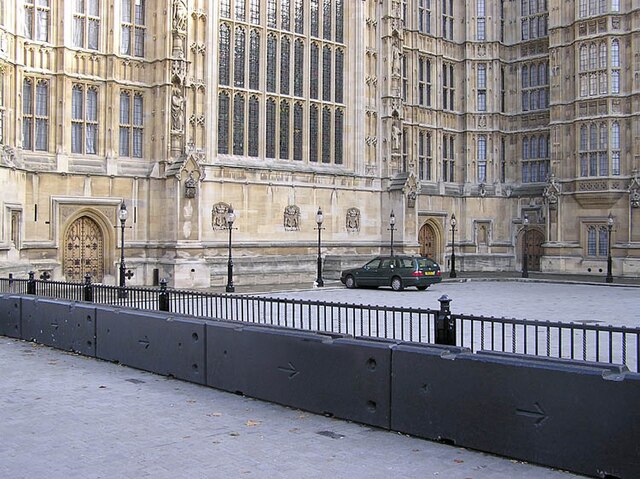National security, or national defence, is the security and defence of a sovereign state, including its citizens, economy, and institutions, which is regarded as a duty of government. Originally conceived as protection against military attack, national security is widely understood to include also non-military dimensions, such as the security from terrorism, minimization of crime, economic security, energy security, environmental security, food security, and cyber-security. Similarly, national security risks include, in addition to the actions of other nation states, action by violent non-state actors, by narcotic cartels, organized crime, by multinational corporations, and also the effects of natural disasters.
President of the United States Ronald Reagan in a briefing with US National Security Council staff on the Libya bombing on 15 April 1986
Security measures are taken to protect the Palace of Westminster in London, UK. The heavy blocks of concrete are designed to prevent a car bomb or other device being rammed into the building.
The SUPO headquarters in Punavuori, Helsinki
Refugees fleeing war and insecurity in Iraq and Syria arrive at Lesbos Island, supported by Spanish volunteers, 2015.
Security is protection from, or resilience against, potential harm. Beneficiaries of security may be persons and social groups, objects and institutions, ecosystems, or any other entity or phenomenon vulnerable to unwanted change.
Women's Army Corps (1941–1945) associated national security with avoiding conversations about war work.
Refugees fleeing war and insecurity in Iraq and Syria arrive at Lesbos Island, supported by Spanish volunteers, 2015
Security checkpoint at the entrance to the Delta Air Lines corporate headquarters in Atlanta
X-ray machines and metal detectors are used to control what is allowed to pass through an airport security perimeter.







